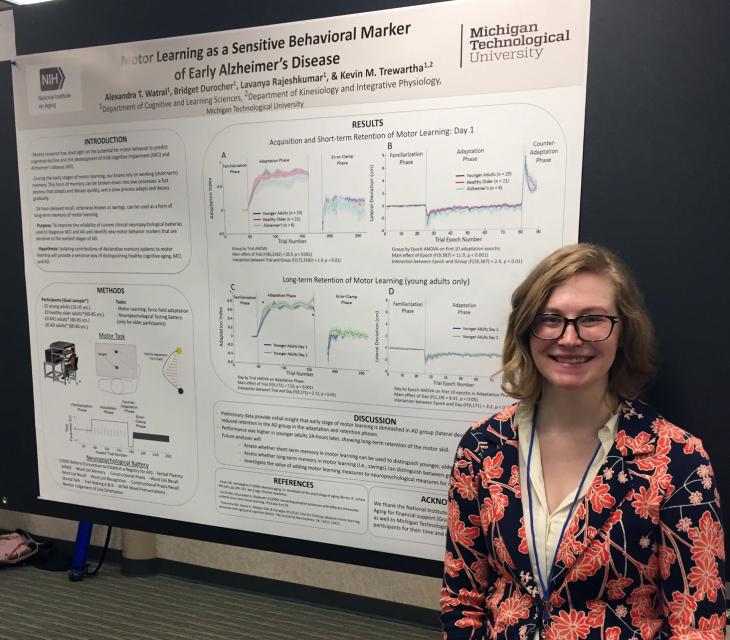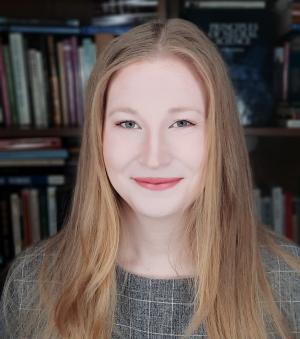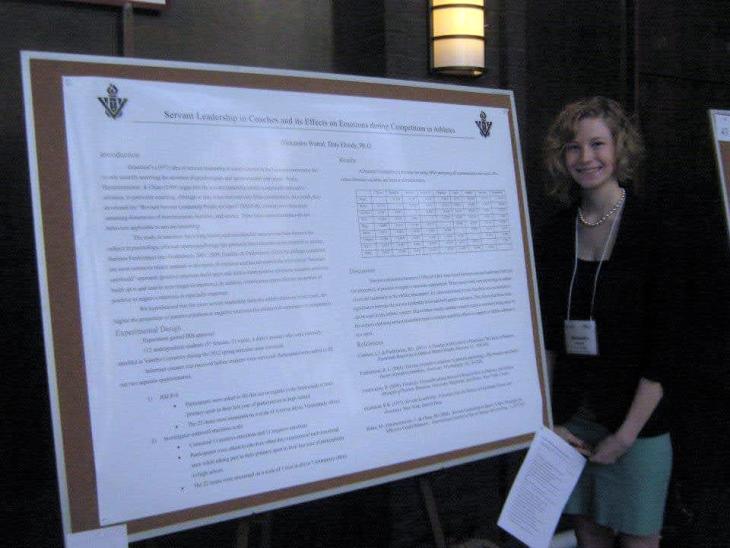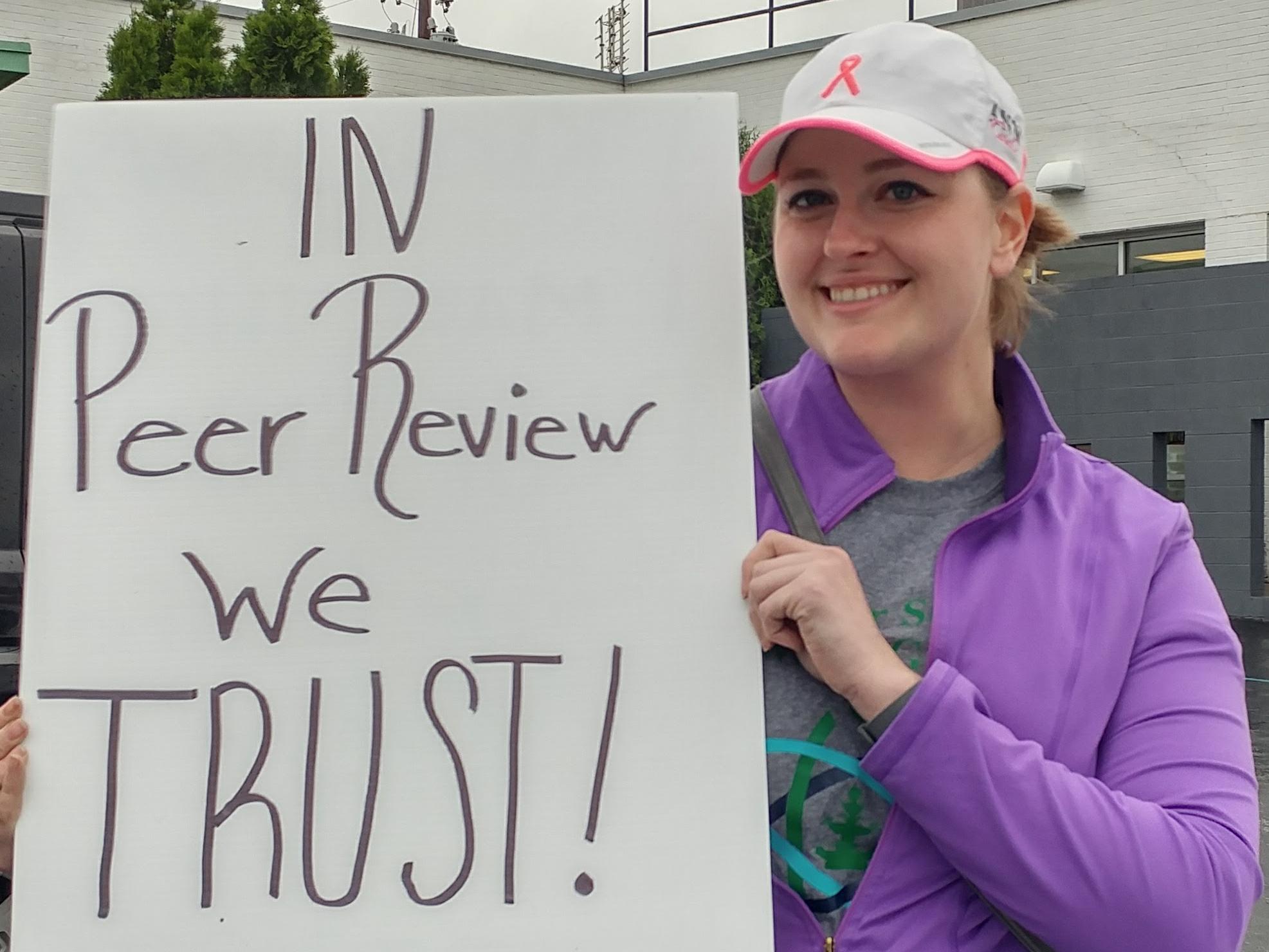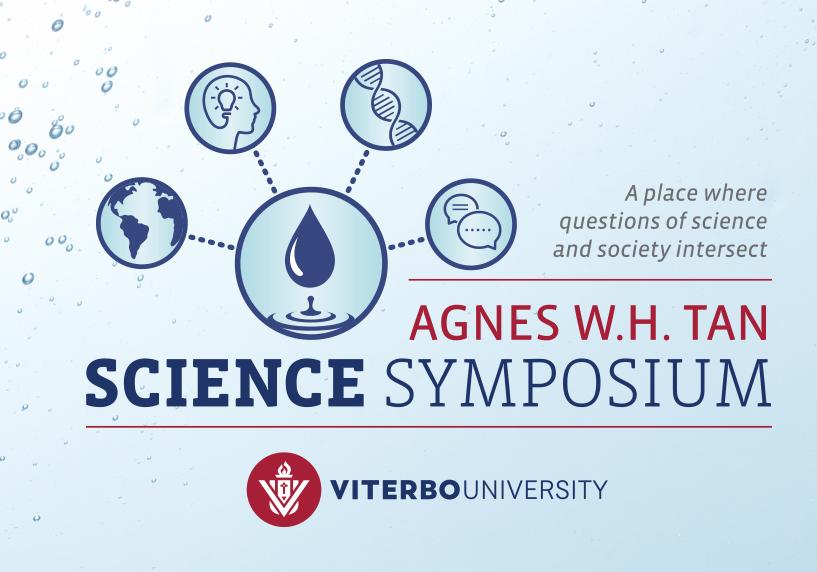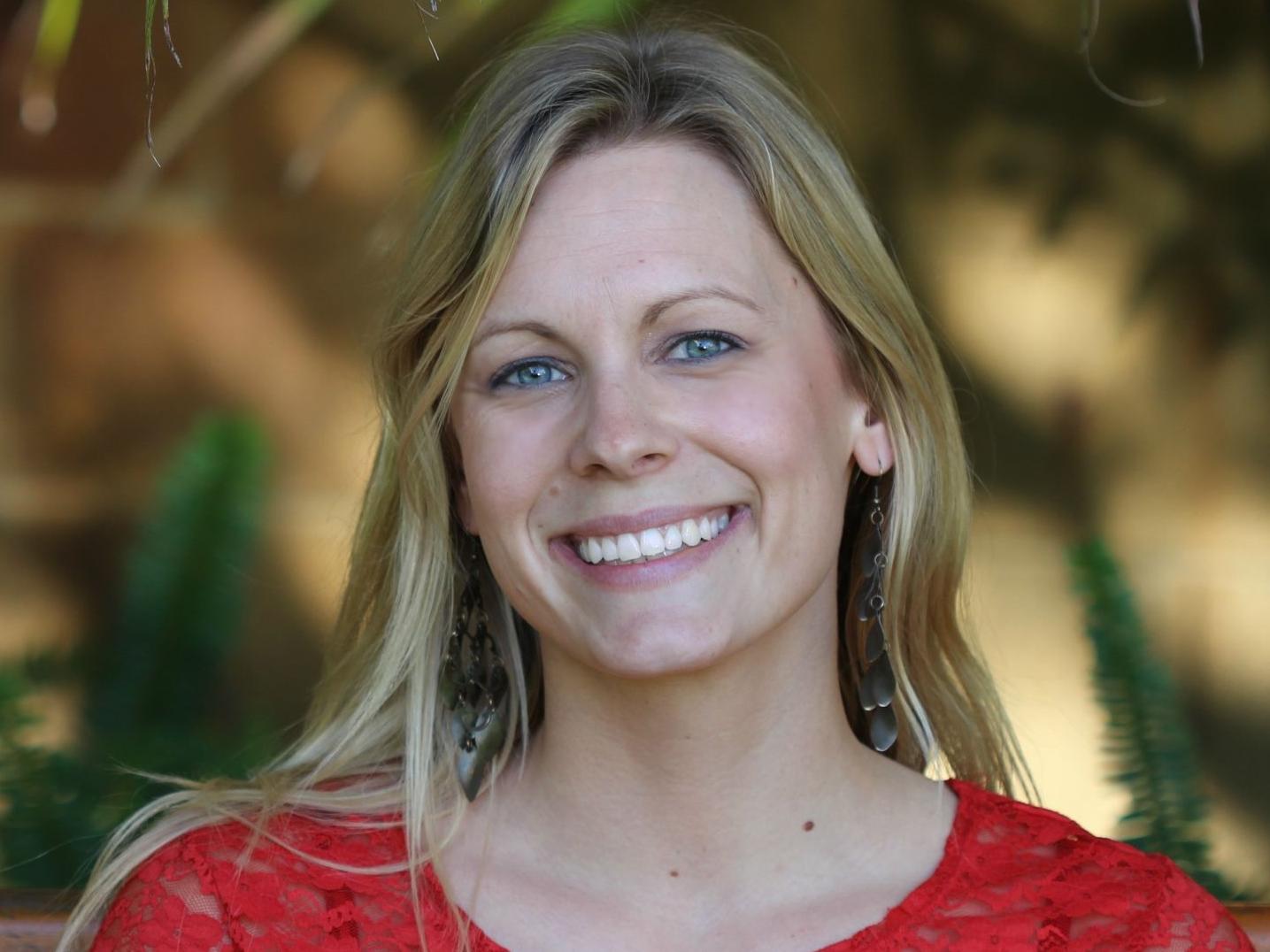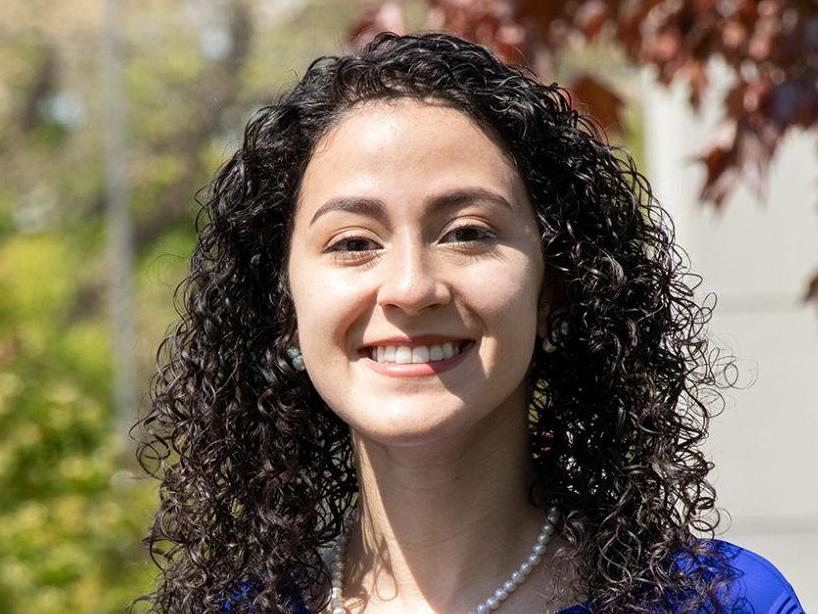What if a simple motor learning test could help diagnose cases of Alzheimer’s disease and age-related mild cognitive impairment in their early stages? Alexandra Watral ’14 aims to find out if that’s possible.
Watral is nearing completion of work on her doctoral degree in applied cognitive science and human factors at Michigan Technological University, and her research work there could help answer that question.
Growing up in the northern Wisconsin town of Phillips, she recalls doing “a lot of engineeresque things, building and programming,” activities influenced by her father, an electrical engineer. In high school, Watral had a general idea that she might want to do something in the field of medicine for a career. She didn’t want to be a nurse like her mother, who was director of the county health department.
Watral was researching possible majors as she prepared to go to college, and she came across one that intrigued her: biopsychology.
Also known as physiological psychology, behavioral neuroscience, or psychobiology, biopsychology is an interdisciplinary field drawing on biology, chemistry, and psychology that analyzes how the brain and neurotransmitters influence behaviors, thoughts, and feelings.
Basically, biopsychologists are neuroscientists who bring to their research a knowledge of behavior and the methods of behavioral research.
“I was like, ‘Oh, this is perfect,’” Watral said. “I always knew I was going to go on to some kind of graduate degree. A biopsych degree opened up a lot of avenues,” such as degrees leading to careers as a doctor, physician assistant, clinical psychologist, researcher, and more.
Watral wanted to stay in Wisconsin for her undergraduate studies, and only two colleges in the state offered biopsychology majors at the time. She chose Viterbo.
“It had very much of a community feel, which is really important to me,” she said.
Looking back, Watral regrets not having overcome her innate shyness as a Viterbo undergrad. A former competitive swimmer, she coached swimming at the La Crosse YMCA while at Viterbo and was involved in the university’s undergrad research program, but she wishes she had broadened her experience. If she missed out on getting involved in some campus activities, though, she made up for it with the depth of connections she made with fellow science students.
“The relationships I had with the other science students at Viterbo were amazing,” Watral said. “We took all these core classes together, and it built this cohort of people. I could go to them to this day if I needed help.”
She also built bonds with faculty and has kept in touch with her undergraduate advisor to this day.
After graduation from Viterbo, Watral considered a clinical psychologist career path, earning a master’s degree in clinical psychology from the Minnesota School of Professional Psychology in 2018. After that, though, she pivoted to her applied cognitive science and human factors studies at Michigan Technological University.
Human factors is an area of study that goes back in this country to the 1950s. In the rest of the world, Watral said, human factors falls under the umbrella of ergonomics. In a way, she said, it could be considered cognitive ergonomics.
“Human factors is an offshoot of systems engineering, just with more psychology and cognitive psychology involved,” Watral explained.
Applying human factors aims to get the best out of people’s capabilities by taking weakness and strengths into account when designing equipment, technology, and processes. Human factors testing is required for medical devices and airplanes, for example, but Watral said could be much more widely used.
“A lot of companies don’t know they could benefit from having an expert in human factors,” Watral said, noting a particular need in the burgeoning area of remote work.
After she completes work on her PhD in about a year, Watral said her goal would be to put her skills and knowledge to work in the health care field, such as applying human factors testing to improve usability of diagnostic software.
Ideally, Watral said, her work can be done remotely. For the past couple years, Watral and her attorney fiancé have lived a “homesteading” lifestyle, living a life aimed at sustainability and self-sufficiency in a home surrounded by land that is part of the Chequamegon-Nicolet National Forest. It’s a perfect spot for someone who loves paddleboarding, fishing, and being in the great outdoors in general.
And luckily, she knows which area taverns are best for pursuing another great passion: playing pinball.

